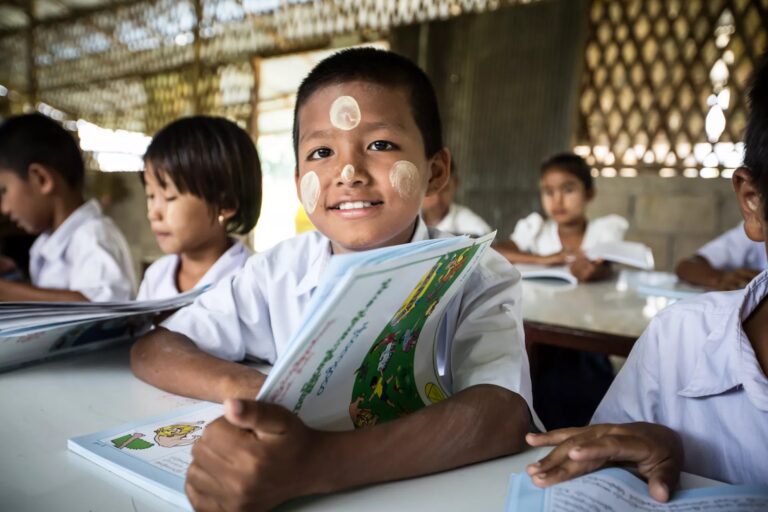By Kassahun Chanie 10 January, 2018
What has to be done to improve the quality of education in Ethiopia? What are the indicators of poor quality of education? In response to these and other related questions, Addis Ababa University Educational Research Institute Director Dr. Belay Hagos recently held an interview with The Ethiopian Herald.
Undoubtedly, he said: ” There is no doubt about the existence of poor quality education in the country .That is why the Ministry of Education has put the issue of quality education as one of its top priorities . One must know also that quality of education won’t be ensured overnight .It takes many years.”
Poor quality of education has been witnessed in many tangible ways. To indicate some of them; on comprehensive exam given to recruit University lecturers from about 10,000 graduates of different local Universities, with above 2.75 GPA, most of them failed even to score 50%. These shows that there is a problem on efficiency of the programs they have attended.
” Not only this, according to the research we have conducted, particularly on Medicine and Health science graduates; with their requirement to take comprehensive exam to be licensed; we have found worrisome result .”
In general, the situation shows that the performance of the graduates did not reach the expected minimum level with other indicators. Therefore there is agreement on the existence of quality problem in our education sector.
There are several factors are responsible for this; that could be observed in the whole system, starting from the lower grade to the higher education level.
These problems are mainly outstretched from the gap in the curriculum which lacked to feed students with the right package fits their age and grade status. According to the institute’s researches , there are students reached grade seven without developing the basic reading and writing skills. These in turn shadowed on the persistency that would have to continue to the student’s development until University.
There is also another problem, which directly related to teachers. A large number of teachers so often chose teaching profession having failed national exams . It is also their last choice thereby attracting top students to the profession is impossible.
” The government has to encourage average students to be teachers improving the salary and providing various incentives, ” he said.
” We have conducted research on whether the public can fund education or not ,the outcome of the research shows that the public want to invest their money in education .Hence, the government needs to take into account this finding apart from allocating 25 percent of the national budget to the education sector.”
He also suggested that the curriculum needs to be re-investigated. Some of the content of curriculum are also not age focused. There is a situation where students made to memorize abstract concepts which they couldn’t analytically understand because of their ages, he added.
” I can tell you from my experience that , for example , my children are now taking Civic and Ethical Education, they suppose to know the meaning of the government, the legislature and judiciary at grade four level? Such concept is an abstract one for them. They need to get the concrete concepts of government, legislature and the like. The teaching and learning process from kindergarten up to grade four need to be concrete than abstract thoughts, curriculum developers need to put into considerations developmental psychology for each stage.”
The examination process also need to be inspected, the institute is now carrying out research on continues assessment, which shows that it is being interpreted as continues marking. “But, on the first place continues assessment is continues feedback for each performance of students, it was not about marking. These could compromise the quality of education. Of course, the issue is debatable, for me continues assessment shouldn’t include predefined assessment,” he noted.
Moreover, there is structural problem on the whole system. For example, there is a difference in grade eight students; between and among states and federal cities. There is a lack of uniformity, which can affect their competency in comparison to each other.
Eventually, after students reached grade ten, the ongoing practice is to give national exam and only who have passed will join preparatory and the rest will go to Technical and Vocational Education Training (TVET). ” I am entirely against this practice. TVET’s shouldn’t be where the incompetents are collected. It is merit based education given there, because it is a learning style provided for who want to learn in practical way. The age students reached this division level also not fitted. For example students who join grade one at the age of six, reached there in their sixteen, which is still immature. Therefore, I believe that it should be at 12th grade .”
At the University level, the avoidance of freshman program in which students engaged in the same and generalist learning that gives them holistic perspective is compromising the quality of education. In addition to this, the criterion referenced assessment style now being practiced replacing the Norm referenced style is also what kills the competition and these in turn compromise the competency of students, Dr, Belay pointed out.
He also suggested that concerned institutions like Universities, Ministry of Education and others should come and work together.For example, ” We are continuously conducting researches ,but there is no way that they could be referred by concerned bodies and become a policy input.”



![[Preliminary Report] CRNA Collaborative Research for Exploring Factors Nurturing"Happy and Resilient" Children among Asian Countries](https://equity-ed.net/wp-content/uploads/2024/09/1725672182698.jpg)


